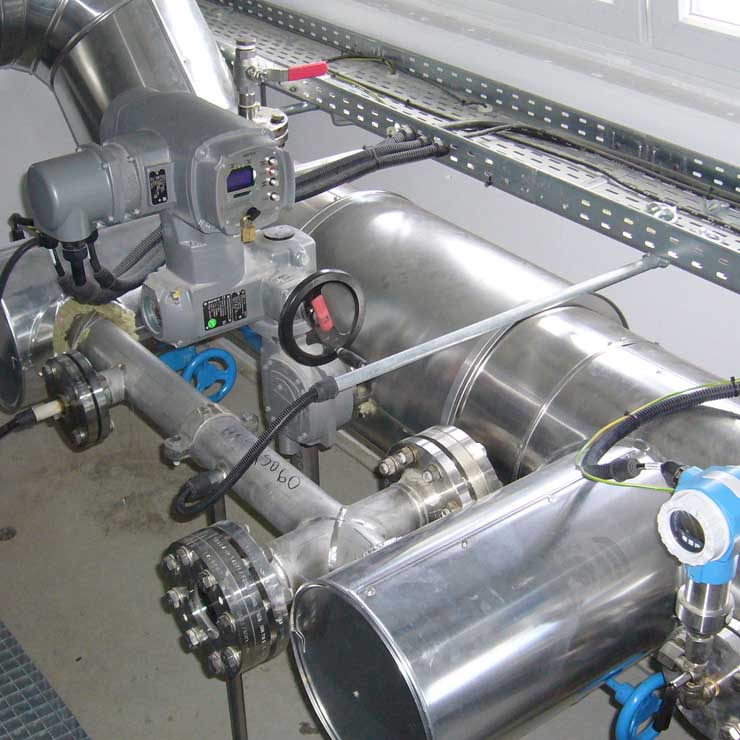
Country: Germany
Customer: Community of Pullach
Products: 2 x VAG RIKO® Plunger Valves DN 150 PN 25
The term originates from Greek “geo”, meaning Earth, and “thermos”, which translates as hot, i.e. thermal energy generated and stored in the Earth. Geothermal energy is referred to as a renewable source of energy which can be gained from the Earth’s crust that has a thickness of about 40 km. This energy is conducted by a continuous flow of heat from the Earth’s liquid core, whose temperature is estimated to be 5,000 to 9,000° C, into the Earth’s crust. In some cases, this heat even reaches the surface – in the form of volcanoes or geysers. Iceland has an unusually high number of active volcanic systems and is known for its geysers and hot springs. It therefore comes as no surprise that geothermal energy is Iceland’s most important source of energy. The average temperature close to the Earth’s surface is about 10° C and increases towards the core by about 3° C per 100 m of depth. In a depth of 3,000 m, this amounts to about 85° C – which is enough to use it for heating.
But also in Germany – or more precisely in Southern Bavaria – the geological conditions are optimal for the extraction of heat from the Earth. Since 2005, the community of Pullach im Isartal, located in the south of the administrative district of Munich, has been operating a geothermal CHP plant run by Innovative Energie für Pullach GmbH (IEP GmbH). Two boreholes are needed, a so-called doublet. Through the first borehole, the extraction borehole, hot water with a temperature of 102° C to 107° C is conducted to the surface from a depth of about 3,500 m and fed into a heat exchanger. After running through the heat exchanger, the heated water is supplied directly to the consumers, and the cooled thermal water extracted before is reinjected into the earth via the second borehole (= principle of sustainability).
VAG equipped the geothermal energy plant with two VAG RIKO® Plunger Valves DN 150 PN 25. These two valves were installed between the wellheads and the heat exchanger and another VAG RIKO® Plunger Valve DN 200 PN 25 was installed upstream of the reinjection borehole. The control valves are custom-made plunger valves, made completely of special steel casting, and are resistant to temperatures of up to 150° C. The medium to be controlled by the valves contains high concentrations of soluble gases such as methane, nitrogen or carbon dioxide and has an operating temperature of 107° C. The valves’ task is to keep the system pressure at a constant level so that all dissolved gases remain dissolved to prevent deposits.
Due to the special conditions of the plant, special steel casting was chosen. This material features long-term resistance to the difficult conditions of thermal water. In 2009, Pullach was given an award as climate protection project by Deutsche Umwelthilfe, an environmental protection organisation, and as early as 2011 Pullach’s district heating network had grown to 25 km.
Almost all public buildings such as the town hall, municipal hall, swimming pool and schools, but also church institutions, commercial enterprises and of course many private customers are supplied with heat generated in the plant. Since their initial setup, the plunger valves have been performing their control tasks reliably and trouble-free.
Enter your e-mail address and password to log in.